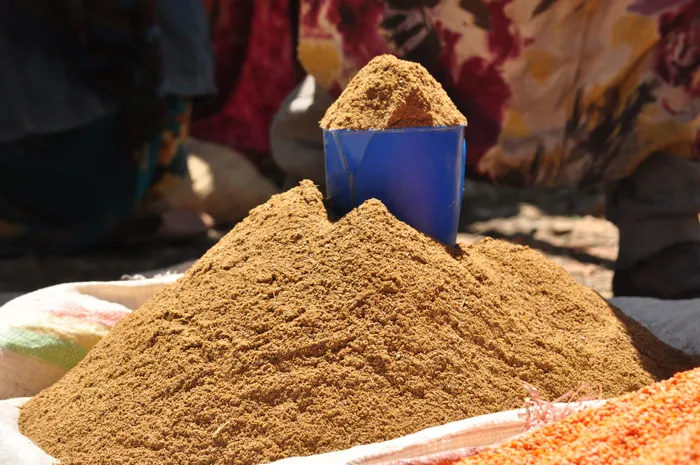Agri-industry raises concerns over declining production of sorghum in South Africa

The Agricultural Business Chamber of South Africa (AGBIZ) has raised concern about the decline of the Sorghum crop in South Africa.
Image: Wikimedia Commons
The Agricultural Business Chamber of South Africa (Agbiz) has raised its alarm over the alarming decline of sorghum farming, a crop that once held promise for various applications including cereals and biofuels.
Wandile Sihlobo, chief economist of the Agbiz, on Tuesday highlighted the paradox facing the sorghum industry: despite its nutritional benefits and the potential for biofuel production, consumer demand remains dismally low, stunting growth and profitability.
“Despite all these benefits, the sorghum industry has not taken off. The challenge is not that farmers refuse to plant it. This is due to its weak demand—consumers are not buying sorghum products like other staple grains,” Sihlobo said.
“The issue of weak demand partly gave farmers hope that using sorghum in biofuels would provide a much-needed market for farmers. But this venture also did not take off. Thus, sorghum production has continued to decline in South Africa.”
The hope for a resurgence in the sorghum market stemmed from a vision of integrating sorghum into the biofuels sector. Initial enthusiasm was evident when Mabele Fuels, in collaboration with the Industrial Development Corporation (IDC), proposed to establish a processing plant in Bothaville.
This initiative promised potential job creation for around 16 700 individuals and aimed to enhance market opportunities for local farmers. Unfortunately, these ambitions remained just that—ambitions.
Sihlobo said that these plants would utilise roughly 500 000 tons of sorghum a year, triple the volume South Africa produced then.
“The government was the key player in creating jobs, boosting the economy, creating a market for smallholder farmers, and reviving the South African sorghum industry. Unfortunately, the government incentives fell short, and the process did not materialise,” he said.
Further analysis conducted in 2015 by Sihlobo and fellow economists identified attractive markets for South African sorghum, notably in Cameroon, Sudan, and Ethiopia. Additionally, they pointed to Japan and Mexico as potential global consumers due to favourable tariff conditions.
However, the pressing question remained whether South Africa could compete effectively in these markets. A subsequent drought in 2015/16 further complicated prospects, leaving local farmers grappling with uncertainty.
Francois Rossouw, CEO of Southern African Agri Initiative (Saai), explained that South Africa has become a net importer of sorghum, despite the crop’s long-standing significance in traditional contexts such as beer brewing and products like Maltabella, a nutritious and gluten-free cereal.
“This seems contradictory, but it reflects a structural issue: local production is insufficient to meet even our modest domestic demand, particularly for key uses like traditional African beer brewing and sorghum-based cereals such as Maltabella,” Rossouw said.
“Maltabella, importantly, is a highly nutritious cereal, naturally gluten-free, high in dietary fibre, rich in iron, and with a low glycemic index, offering superior health benefits compared to many other cereals. Unfortunately, these nutritional benefits have not translated into increased consumer demand, especially as Maltabella and similar products are occupying less shelf space in modern retail environments.”
Rossouw said that from a farmer’s perspective, sorghum’s challenges were economic.
He said the decline in sorghum planting was not about a lack of farmer interest, but a combination of weak domestic demand, better profitability in competing crops like maize, and an inability to compete globally with lower-cost producers like the US.
“To reverse this trend, South Africa would need to stimulate local demand, explore export opportunities, and invest in research and seed development to improve productivity and reduce production costs,” he said.
BUSINESS REPORT

The Agricultural Business Chamber of South Africa (AGBIZ) has raised concern about the decline of the Sorghum crop in South Africa.
Image: Wikimedia Commons